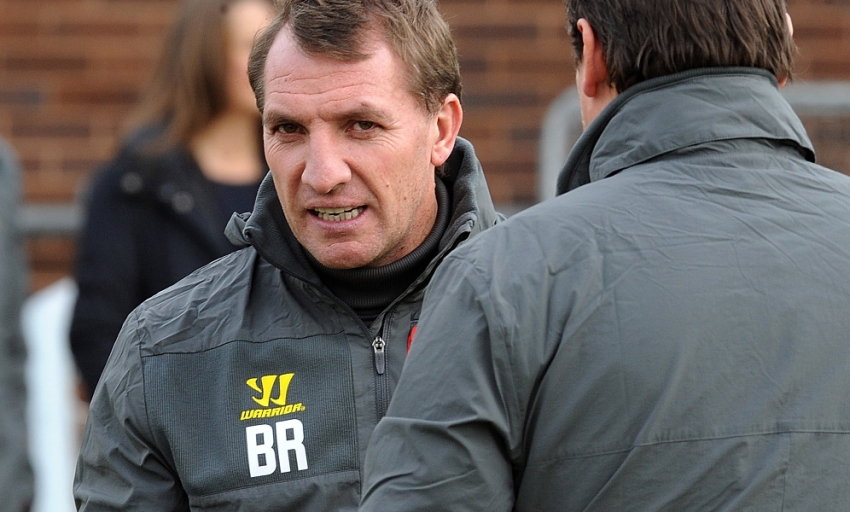Rodgers: We're set up to always improve
A daily approach focused on each individual's needs is what allows the Liverpool collective to improve as the season unfolds, according to Brendan Rodgers.
The Northern Irishman and his specialised backroom staff oversee meticulous preparation at Melwood, with unique programmes mapped out for every player.
In Rodgers' previous two campaigns at the Anfield helm the Reds' form has surged in the second half of the schedule, almost earning a league title in 2013-14.
The trend has held true this year too - Liverpool are currently on a 12-match unbeaten run in the Barclays Premier League, stretching back to mid-December.
Champions League qualification is now the objective for the last 10 games, while FA Cup glory remains a prospect with a quarter-final replay at Blackburn Rovers.
Rodgers explained to the Liverpool Echo: "My staff and I have a periodised programme set out from day one right the way through the season.
"At any level of work it's about achieving that progress and improvement.
"The nature of the methodology here and how I develop players is about the individual for me, the needs of the individual, and that goes into the collective.
"What happens through our work is that players and individuals improve. When you improve as a collective then you get the gains from that.
"We have a great sports science team here and the boys always have a real high level of fitness. The conditioning of the players is excellent and that helps in the closing months of a season."
A relentless work ethic founded on high energy pressing has been a hallmark of Rodgers' side ever since he was appointed as boss in the summer of 2012.
The physical tasks carried out by the Reds have been matched by a strong mentality, particularly amid the maelstrom of meetings with Premier League rivals.
See recent victories over Tottenham Hotspur, Southampton and Manchester City as prime examples. "The mental side of it is also very important," Rodgers added.
"The measure of our game here is based around confidence. We go into the pressure situations towards the end of a season and our game is well suited to pressure.
"It's about using various tools to allow us to find the cause. It's important to find the cause that motivates players to work.
"For me the second part of the season is massive in terms of tapping into the psychology of players - reinforcing the commitment to what we're doing and why we're here.
"Ultimately, we have an inherent belief in what we do. That combination makes us improve as each day goes on."



